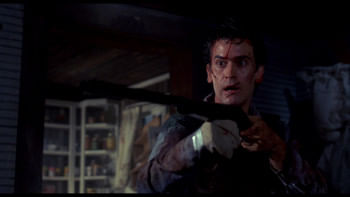Why recent horror movies aren’t as appealing

With a rise in the number of horror movies being released each year, many recent releases haven't been able to meet expectations when it comes to scaring the audience. Usually, these films rely on ineffective jump scares that manage to hold the audience's attention only for a fraction of a second.
The greatest decades in terms of the production of horror movies would be the 40s and the late 80s up to the early 90s. The latter delivered us the classic boogeyman trope of a stalker/slasher targeting a group of young people. In this mix, we were presented with Freddy Krueger, Ghostface, and Jason Voorhees, to name a few. These killers did not only play the role of the antagonist, they provided us with emotionally evocative scenes that supported the film and their continuation.
This characterisation of the villains is a large part of what makes the genre of horror so enticing. When you take that away, there isn't much to bear the weight of the viewers expectations except the gore and jump scares. The high-budget concepts and the ever-disconsolate protagonists are what carry the movies. Even then, the main character is generally either a middle-aged woman with no sense of self-preservation, or an adolescent girl whose hidden trauma prevents her from saving herself in dire circumstances.
Horror is a genre heavily reliant on imagination and there are countless variations of it. From psychological thrillers to supernatural comedy, all horror movies have one thing in common – jump scares. The numerous abrupt sounds and flashing lights all take away the creativity and suspense the film may have achieved without resorting to such gimmicks. A good example of a movie without any cheap jump scares is The Babadook (2014). The movie explored the themes of grief and paranoia, accompanied by an eerie atmosphere and unconventional ending that left one deeply unsettled.
This proves that being scared does not necessarily equal to jumping in one's seat in fright, it can also be interpreted as a disconcerting feeling that plants doubt and discomfort in one's mind. Useless sound effects that are not timed right take away the tension from the aftermath of a scene, leaving the audience grasping at straws. Even if the build-up is powerful, the misleading threat comes out as unsatisfying for those who expected some real action.
The strategy that the marketing team of movies with a lower budget use ensures profit, even if the movie is the single most disgusting thing you'll ever watch. A trailer that hooks the viewers from the start will definitely create more buzz in the movie theatres. If advertised correctly, awful films are capable of topping box offices, surpassing better works that were simply not marketed fruitfully. Chernobyl Diaries (2012) was a film that faced major backlash as soon as it was released, yet it generated profits thirty-seven times its original budget. Despite it not meeting expectations, it still made money. And one could speculate that was the main goal of the producers. So, is it the producers' fault for disappointing us, or ours for getting our hopes too high?
The genre of horror is evolving, some of it for the better, most of it for the worst. However, filmmaking is an art that can be adapted and perfected gradually, especially when it concerns a style as fluid as horror. Therefore, it would be wise not to dwell on preconceived ideas and hope for the betterment of horror movies in the future.

 For all latest news, follow The Daily Star's Google News channel.
For all latest news, follow The Daily Star's Google News channel. 








Comments